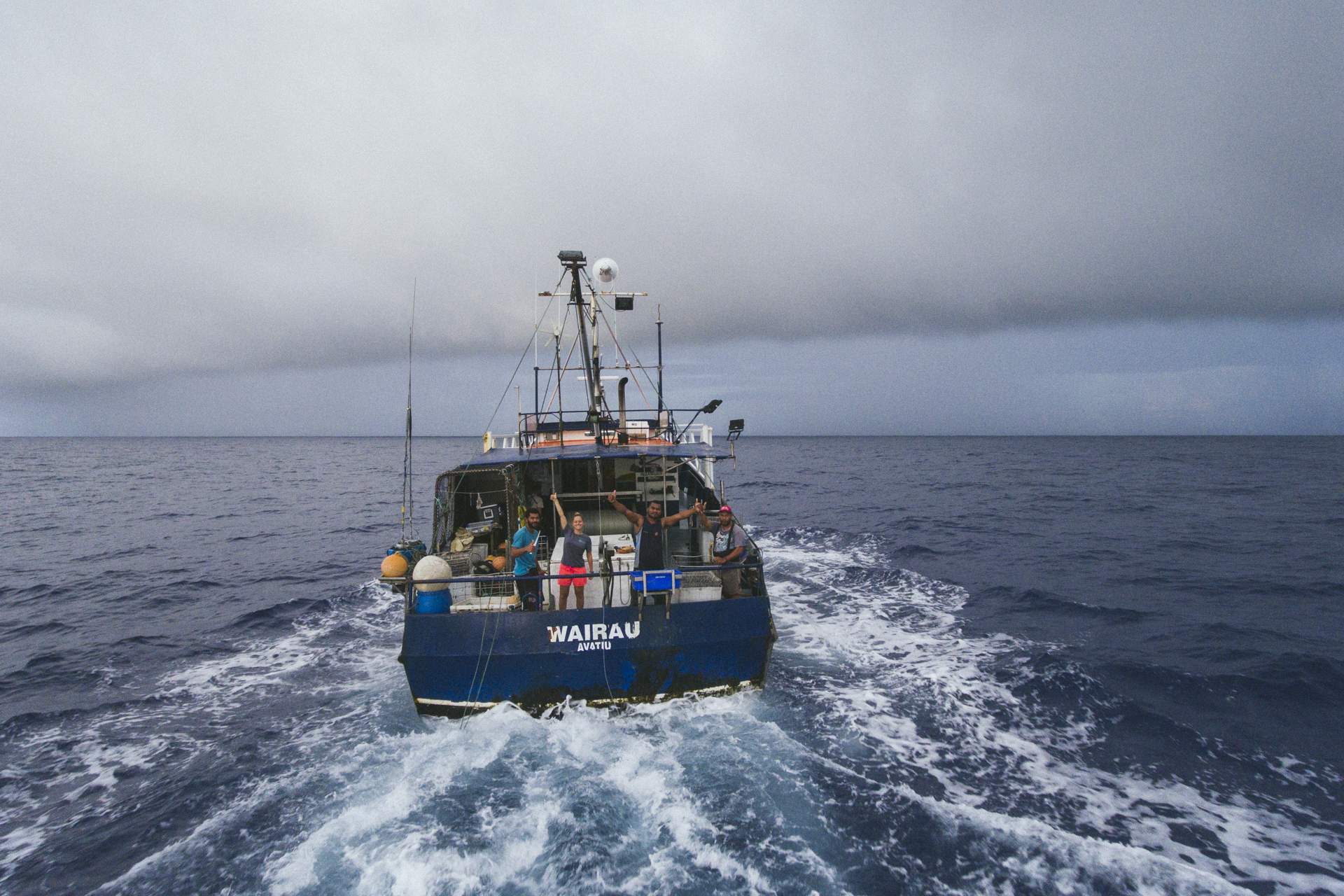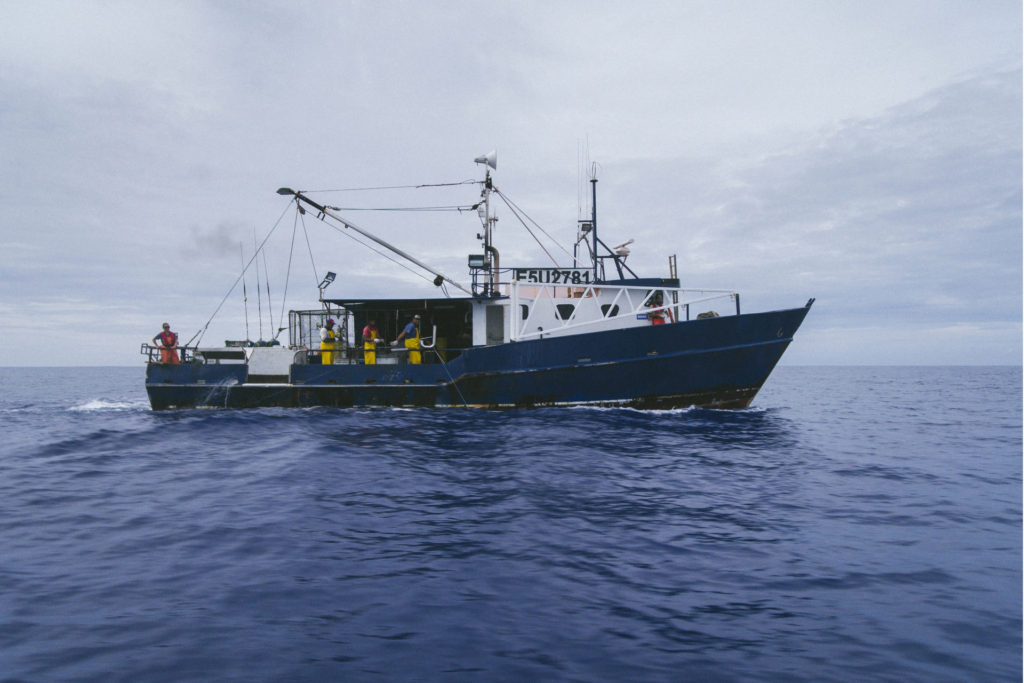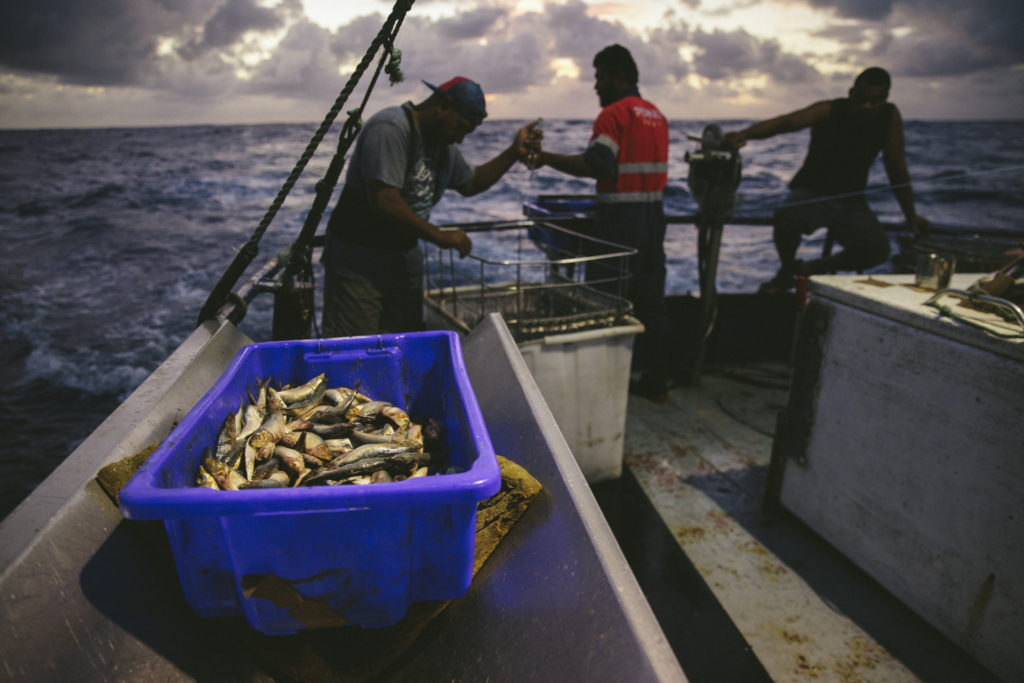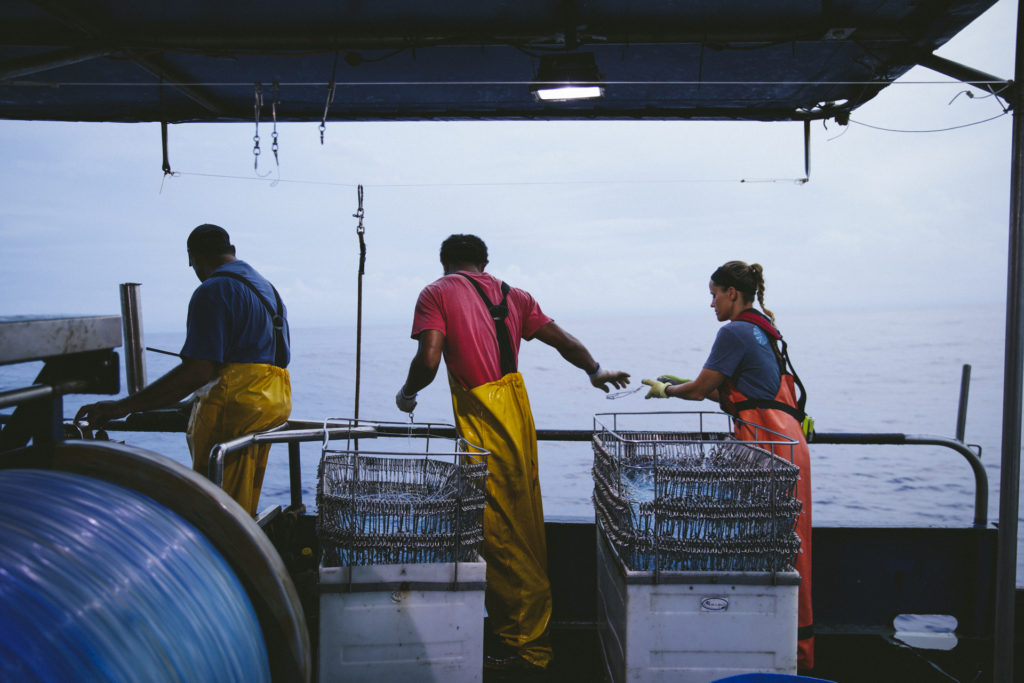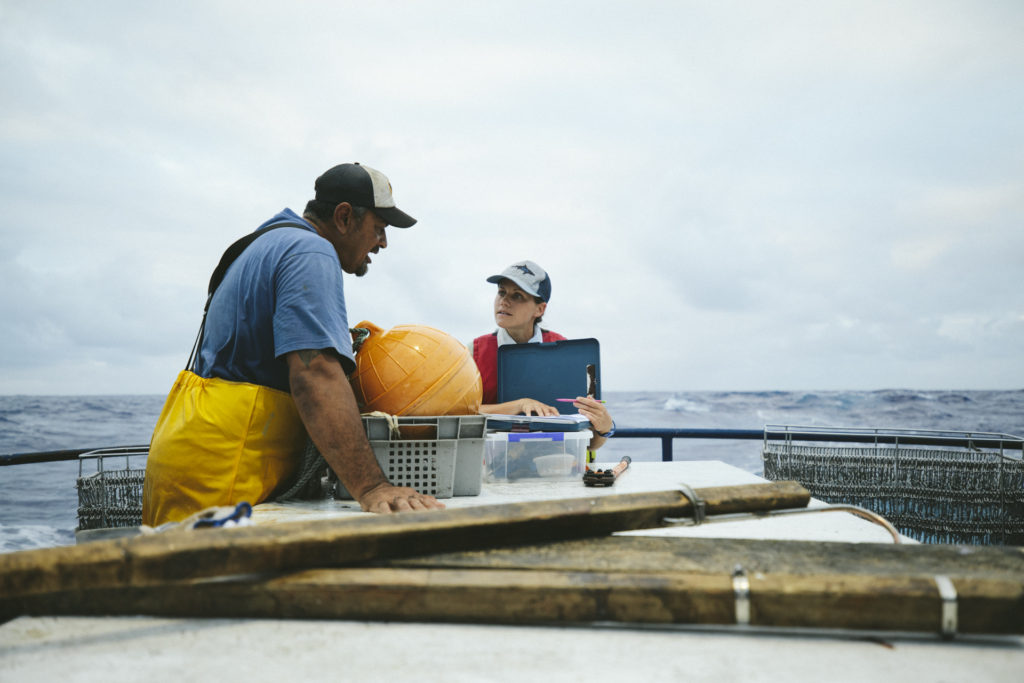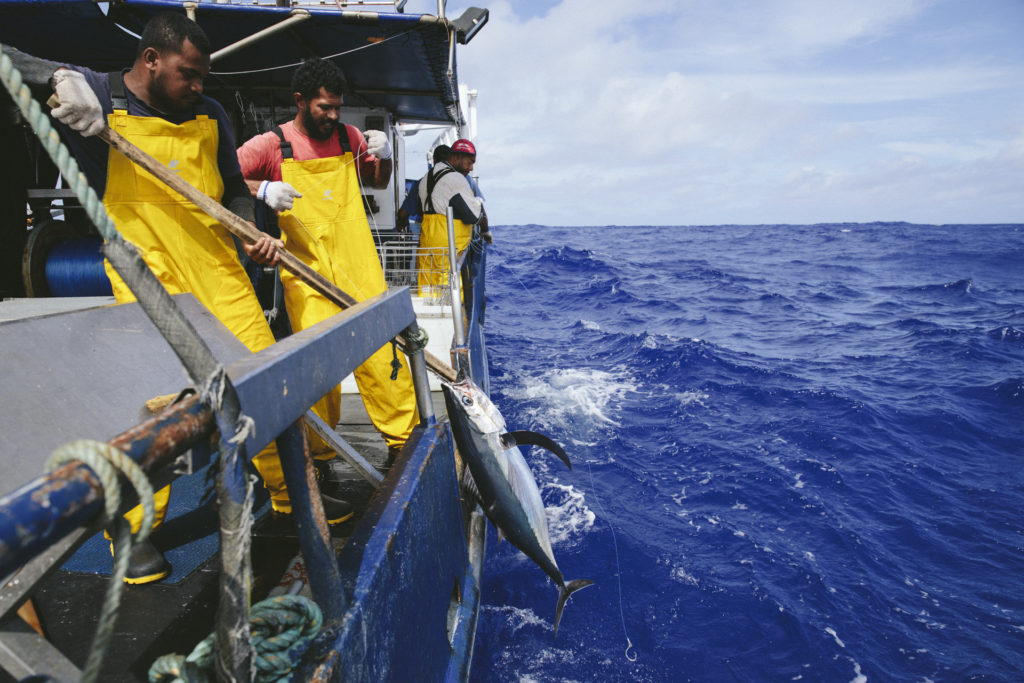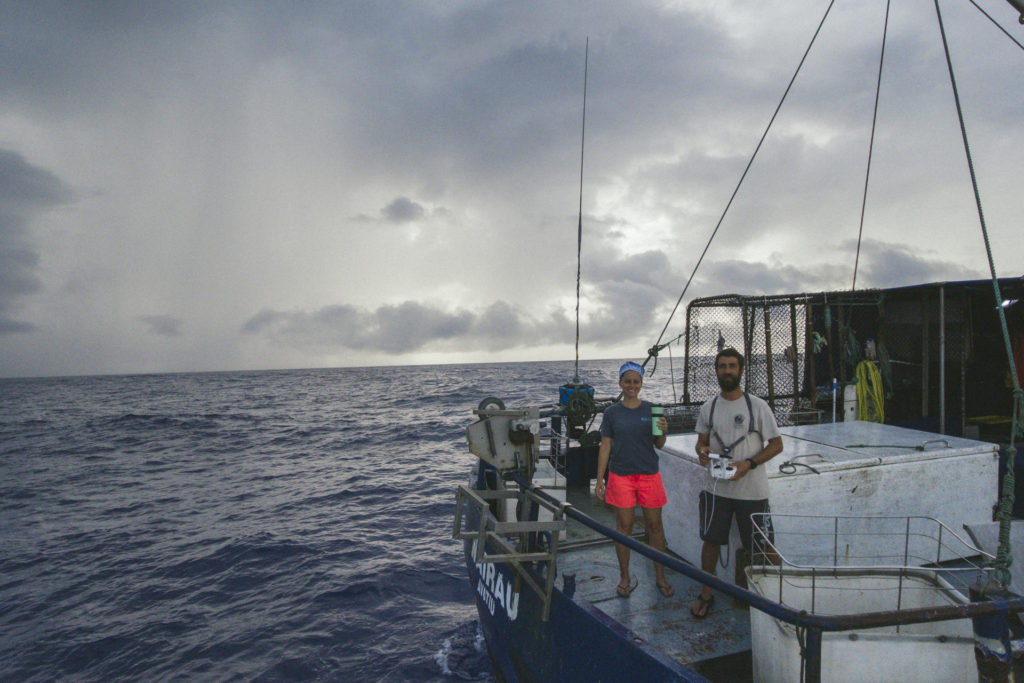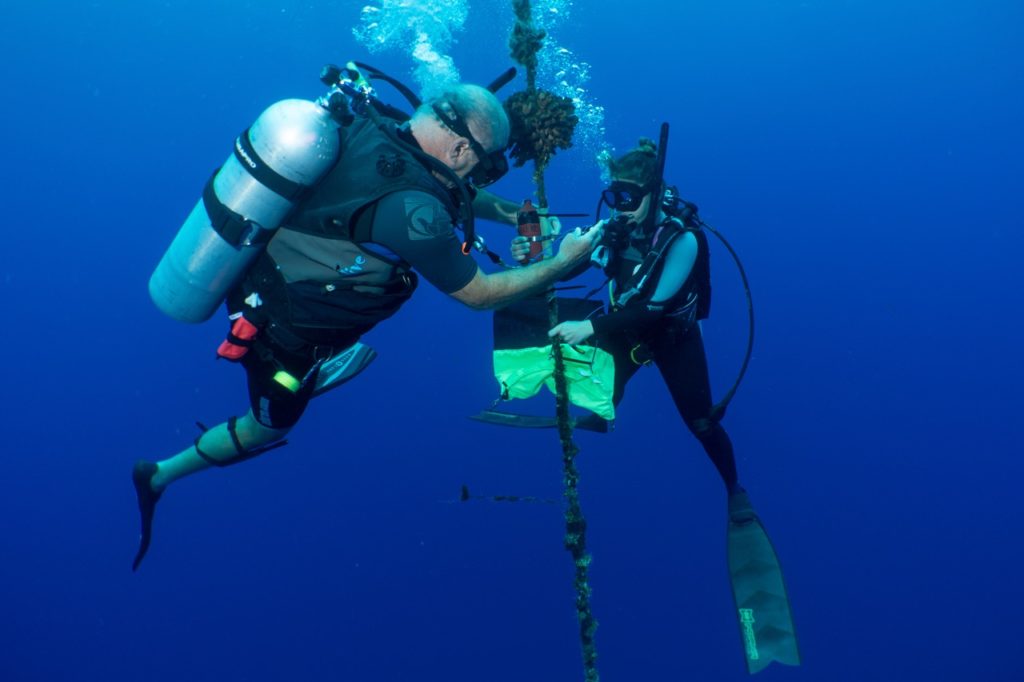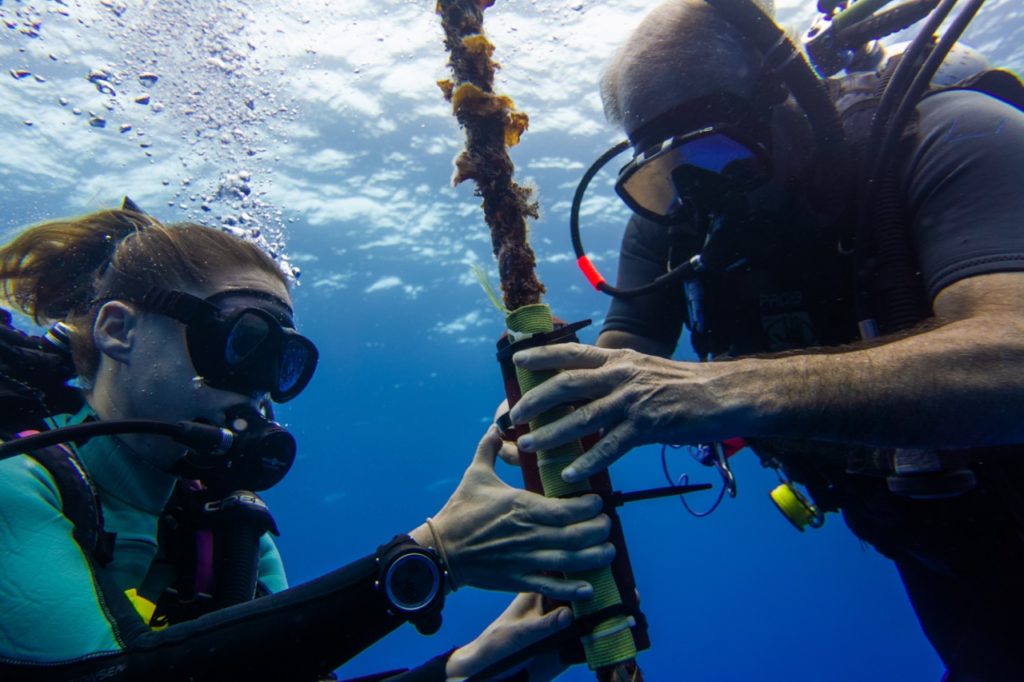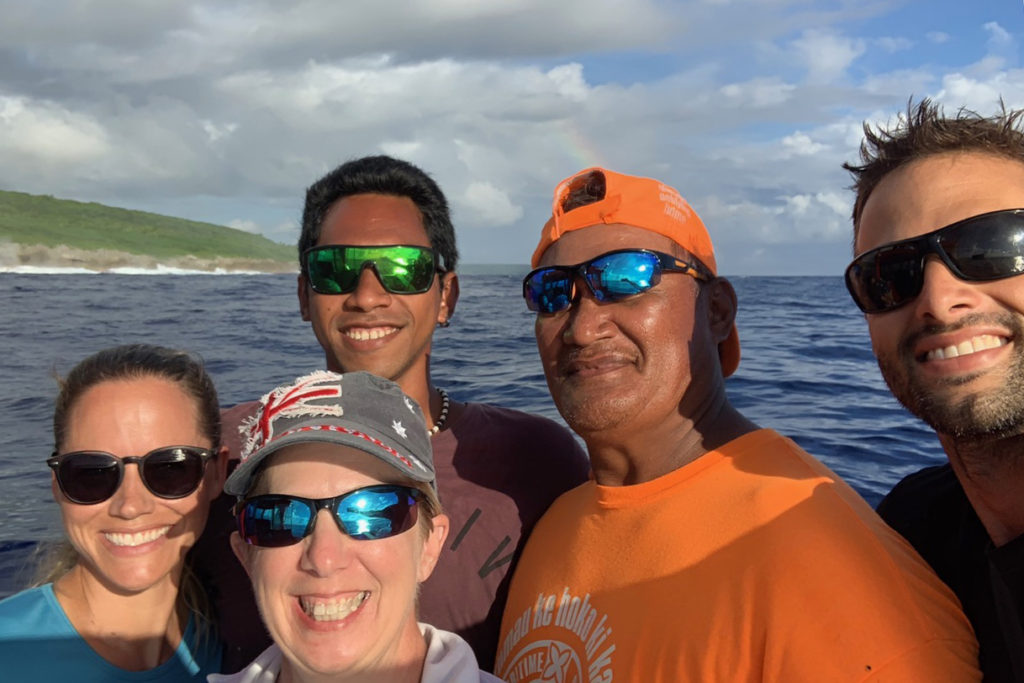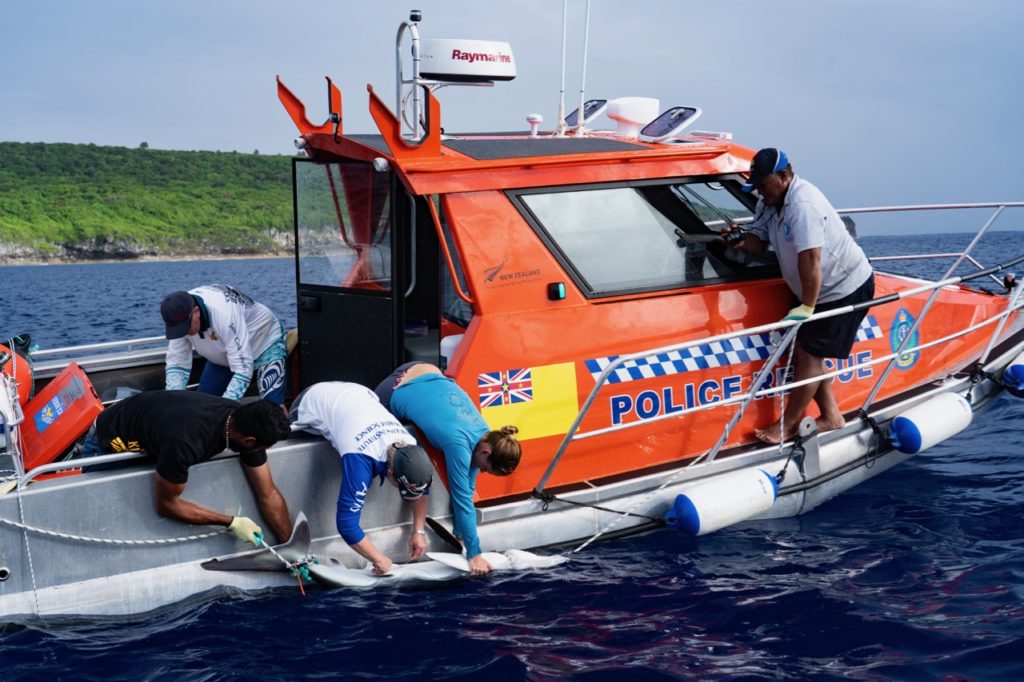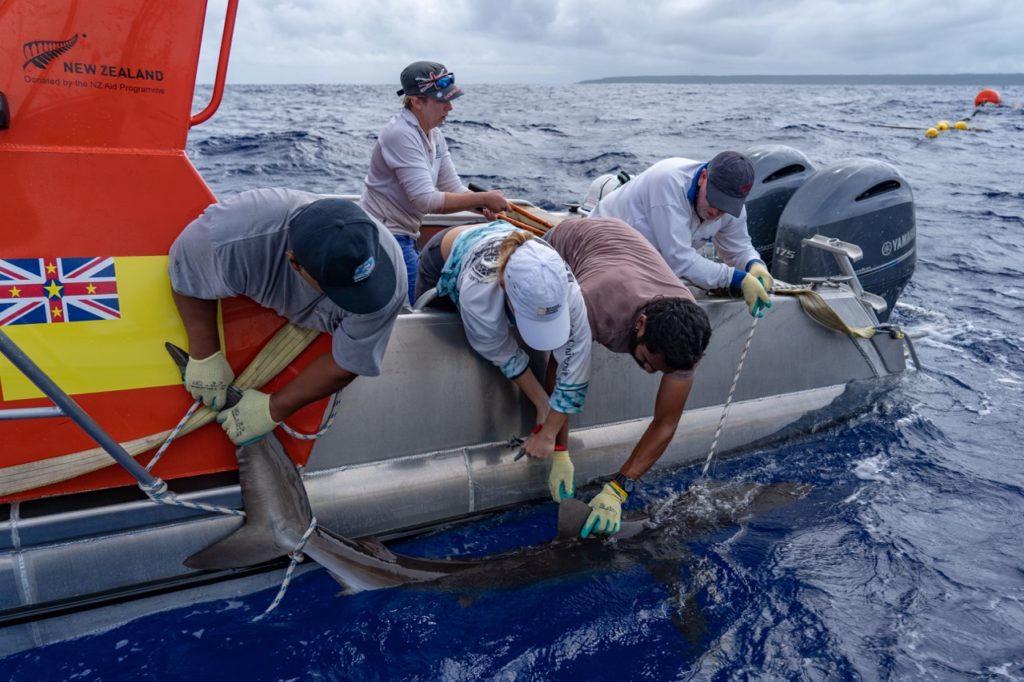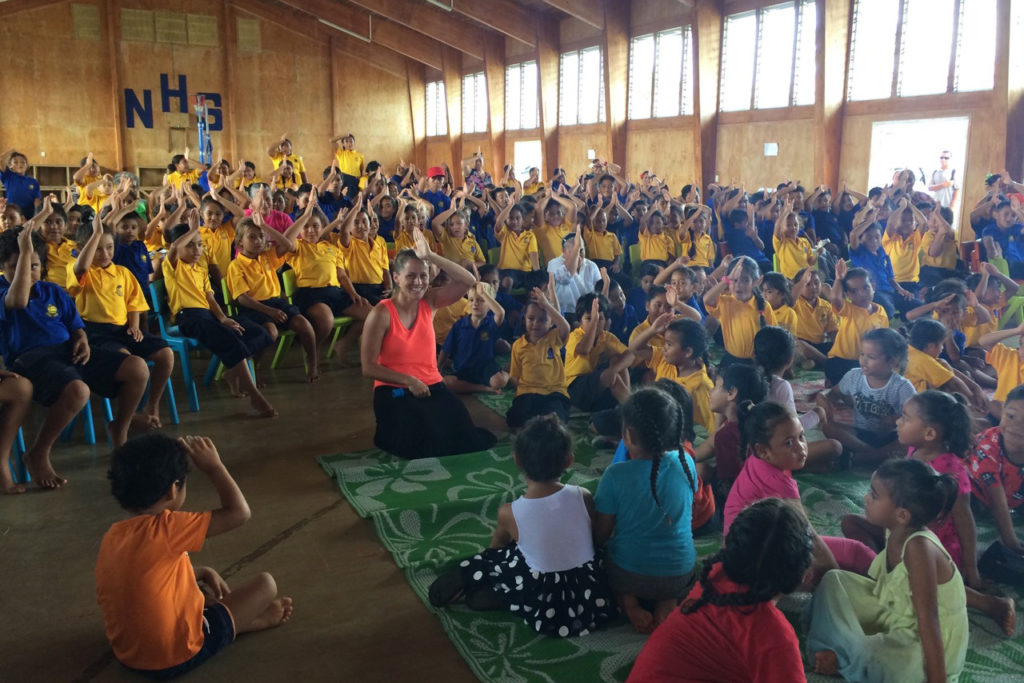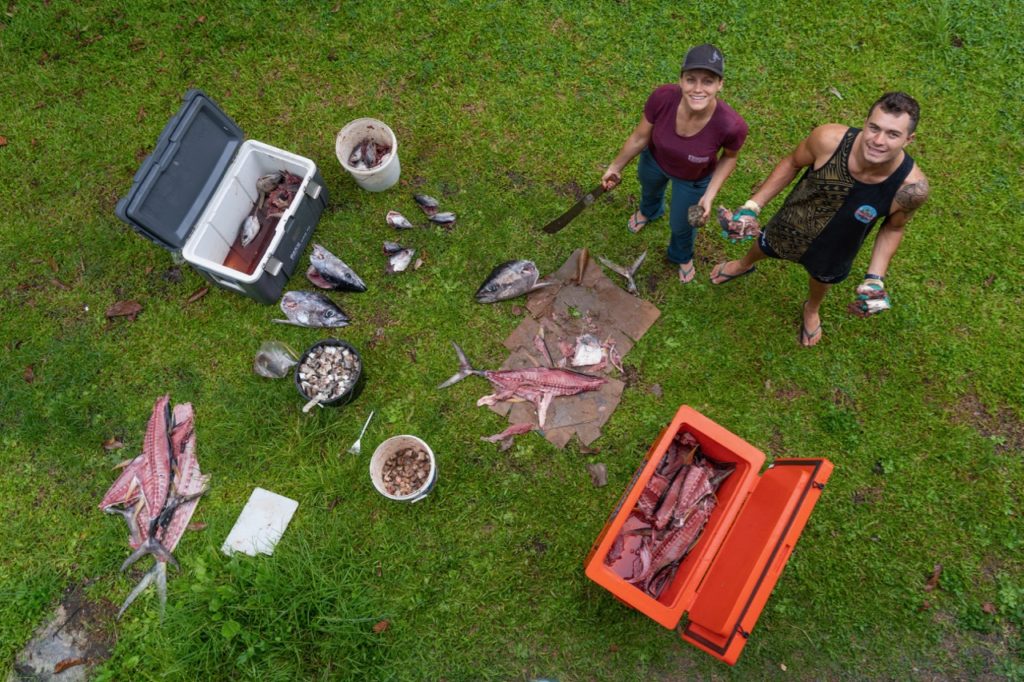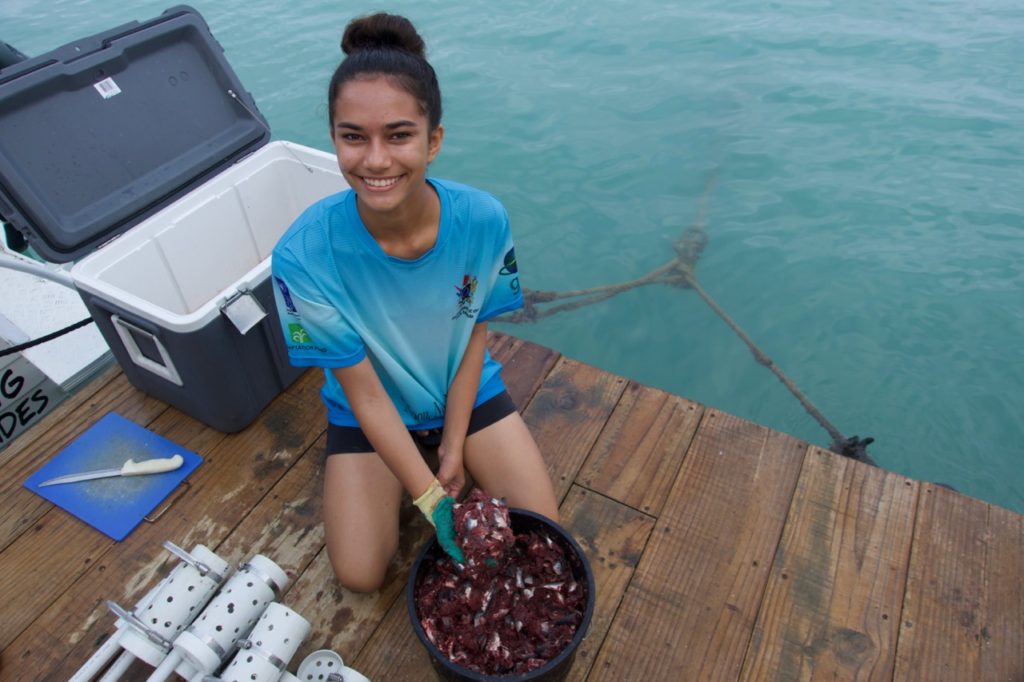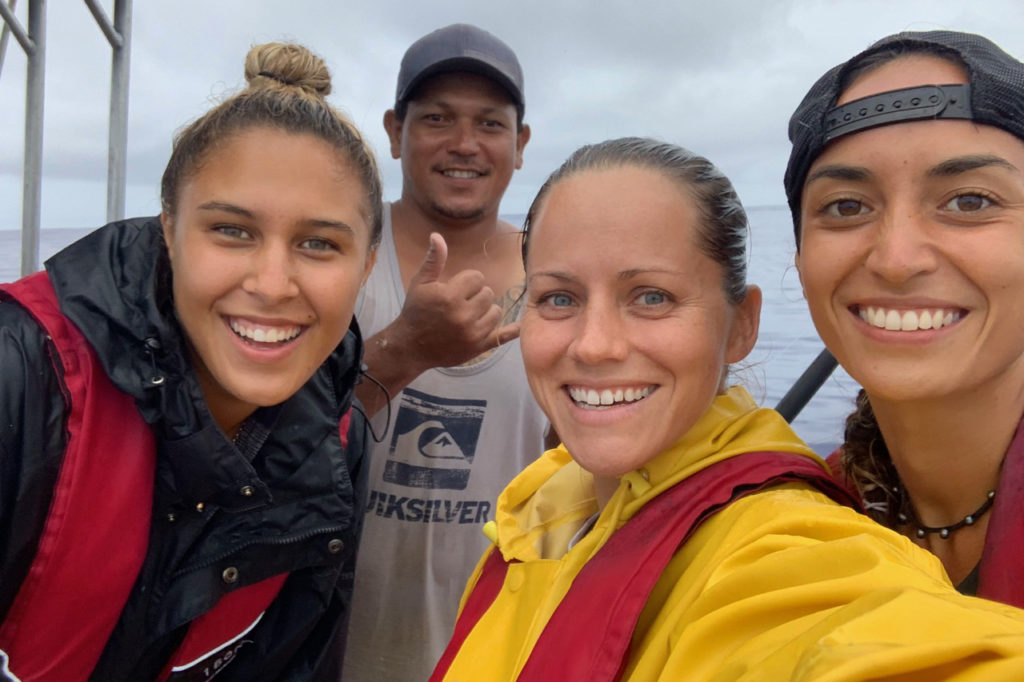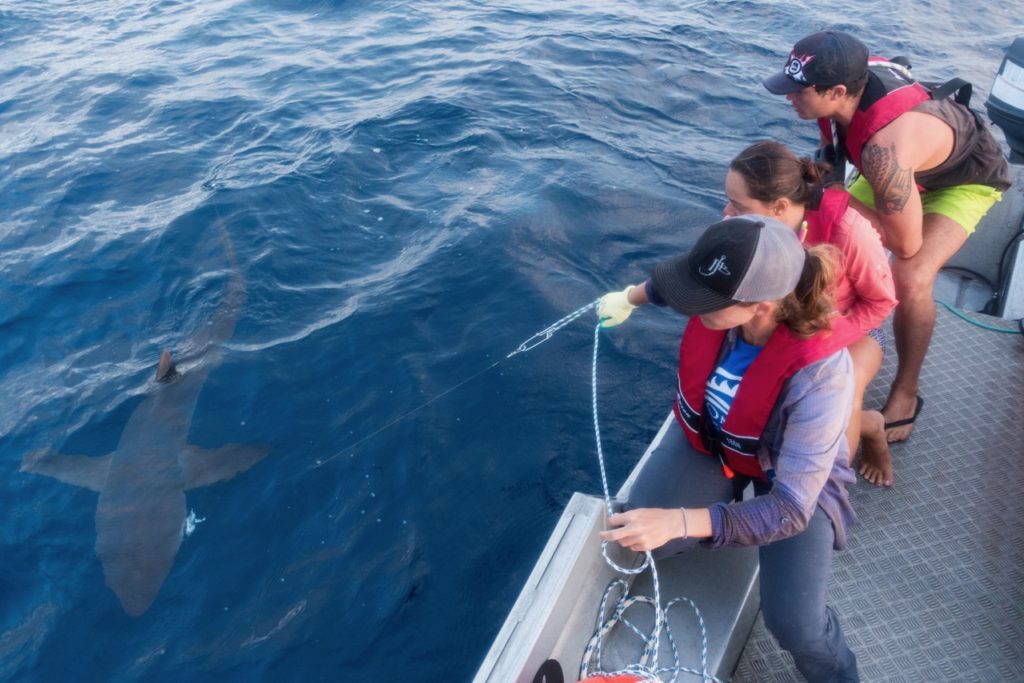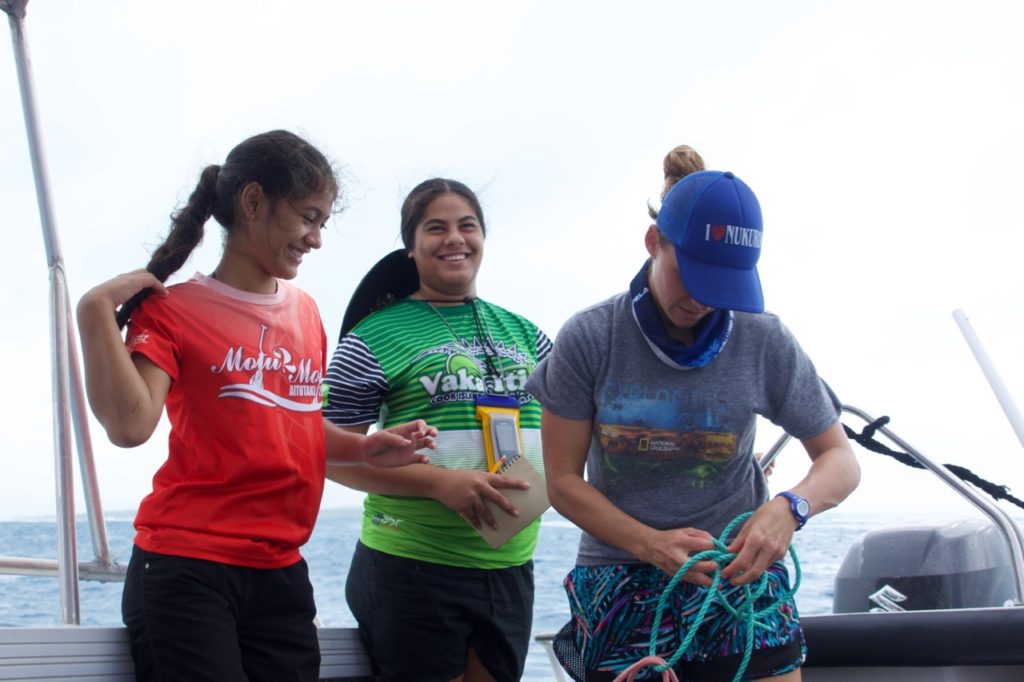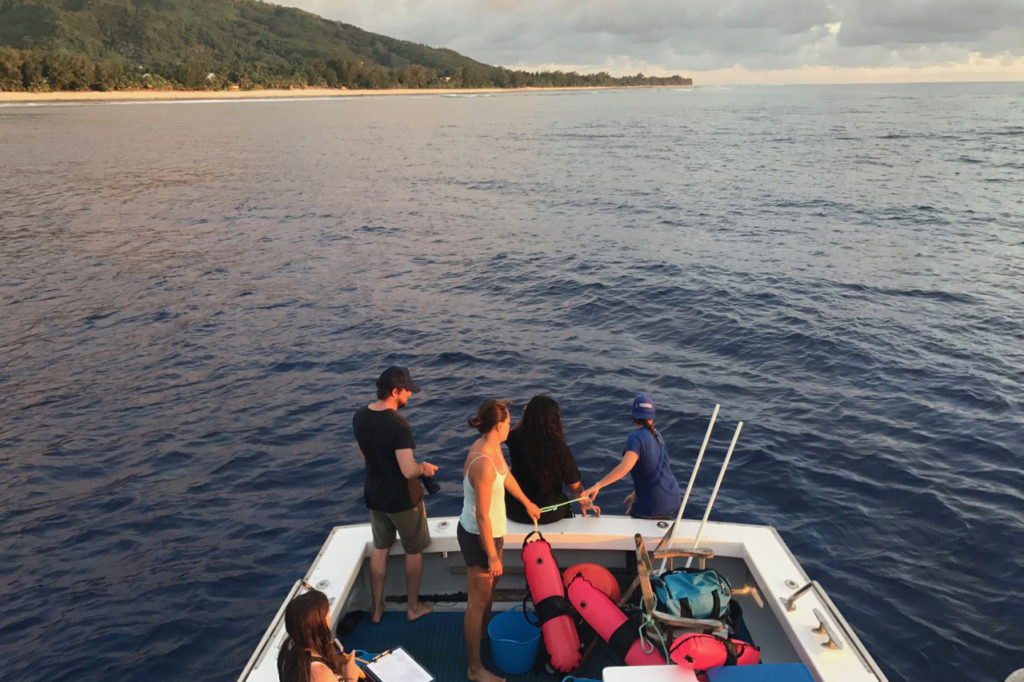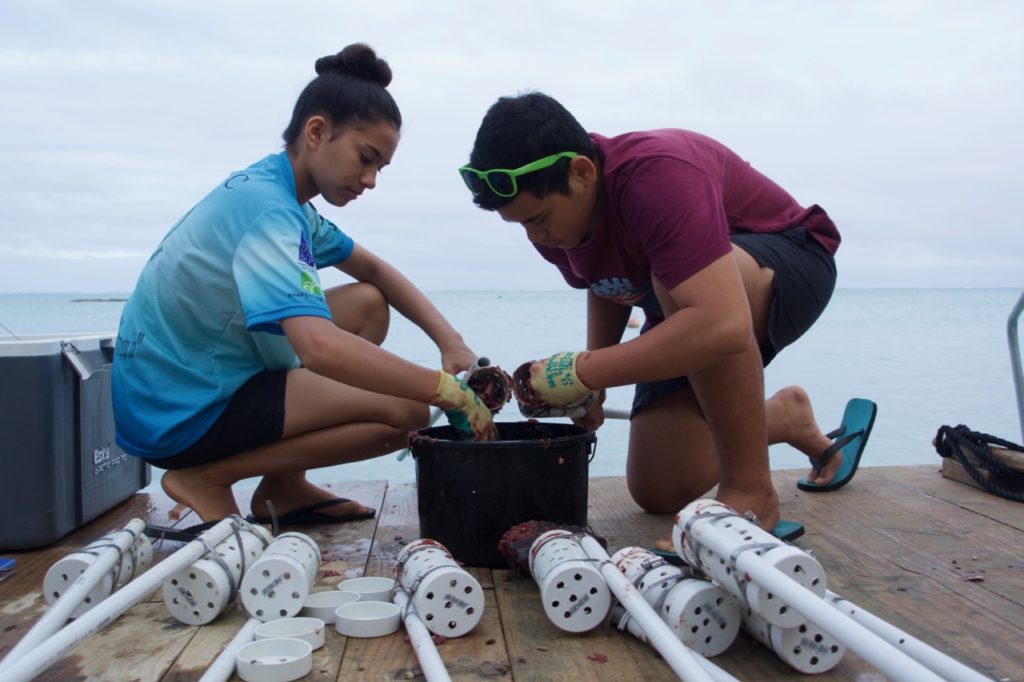We’ve been busy and we’re excited to share our progress with you. Here’s what we’ve been up to:
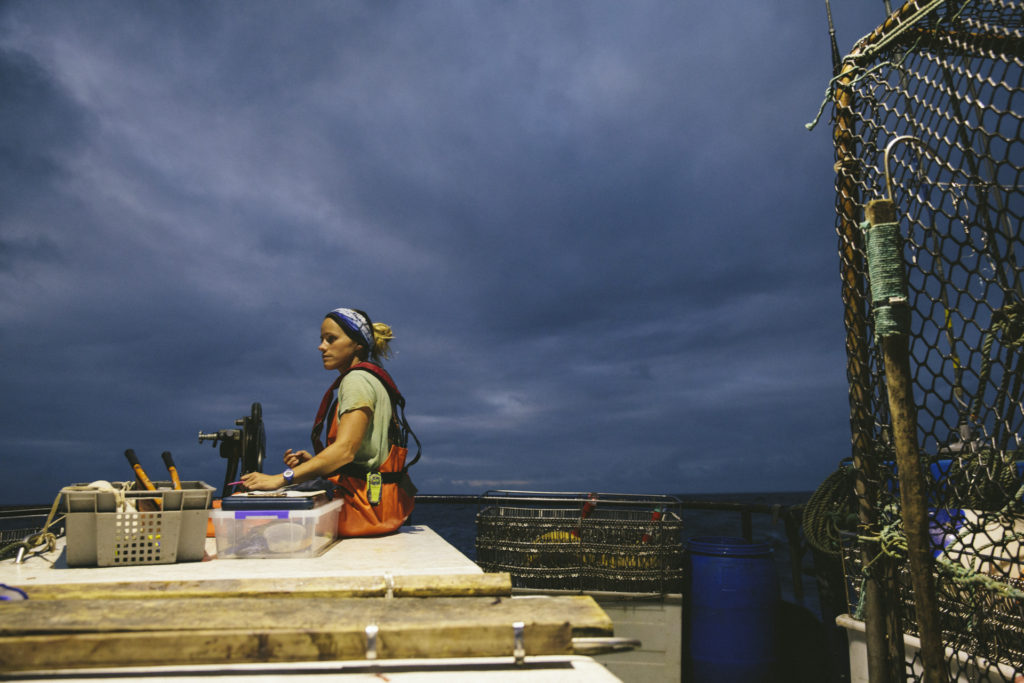 RESEARCH FROM COMMERCIAL LONGLINE FISHING BOATS
RESEARCH FROM COMMERCIAL LONGLINE FISHING BOATS
Jess has been fortunate to have the support of the Cooks Islands’ only local longline operation, Ocean Fresh. They’ve let her jump onto several trips, and the crew was especially accommodating and excited to help out with the research (more excited than Jess was anticipating—they keep asking about where each individual shark they tagged has gone!). On one trip, the owner allowed us to bring a photographer onboard. And, as luck would have it, we didn’t catch a single species of our target shark. It was truly unbelievable. While it’s a good thing that there was minimal shark bycatch on that trip, it was a bummer for us because we had tags that needed to be deployed and we would’ve been able to capture the process to share with you. These trips on commercial vessels are invaluable for our work because it gives us realistic guideposts about which policies would be effective at sea—and which are likely to be ignored in the absence of fisheries observers. Despite missing out on shark tagging, our photographer Erin Feinblatt celebrated his birthday onboard and captured life at sea beautifully.
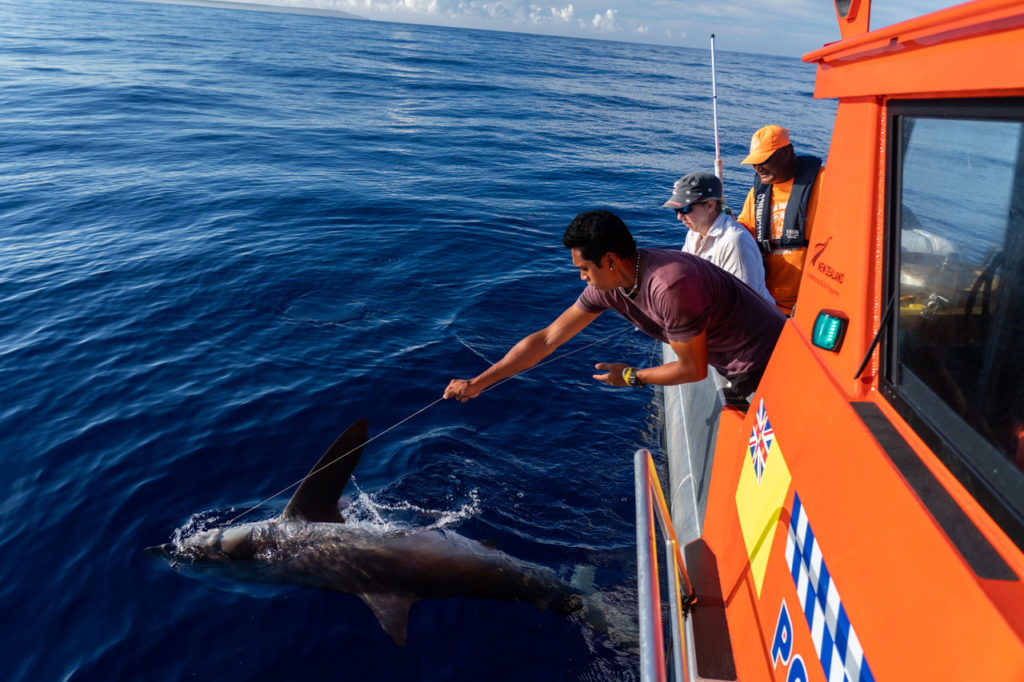
NIUE
Since we last wrote, we’ve pioneered shark research in Niue alongside an incredible local team, including Tofia Niue (local NGO), the government, and local fishers. During the National Geographic Pristine Seas research expedition that we championed in 2016, our cameras discovered that Niue had high numbers of grey reef sharks on Beveridge Reef, a submerged atoll roughly 125nm away from Niue. Concurrently, fishers told us the high numbers of tuna and wahoo they were losing to shark depredation concerned them. Some wondered whether Niue had “too many sharks”. So, we were asked to investigate. We designed a research project to determine which species the fishers were interacting with, whether there were specific patterns to the shark movements, and whether they were directly correlated to fishing activity. This project launched our human wildlife conflict program, which aims to understand the interactions between sharks and local fishers and to work together to find solutions: fishers need to be able to land fish, but we cannot just wipe out all of the sharks (most fishers agree with us ;). We successfully concluded the pilot project last year in collaboration with our local partners, National Geographic Pristine Seas, and the Australian Institute of Marine Science (AIMS) (huge thanks to Dr. Michelle Heupel for donating the tags, receivers and a chunk of her time). Together, we set out an array of acoustic tags and receivers on sharks and tuna. We’ve got some interesting data, which we’ll talk about in another newsletter. We are proud to announce that we received funding to expand the project this year from Lyda Hill Philanthropies. Dr. Alan Friedlander of Pristine Seas and I are leading the tuna and shark research, respectively. We’ve been working together in Niue for a number of years in support of the Niue Moana Mahu Protected Area, and we’re proud to continue working alongside Niueans for this research project. We’ve also added a social scientist to the team, Dr. Jacqui Lau from James Cook University’s Australian Research Council’s Centre of Excellence. We’re thrilled to have her onboard so we can understand the fisher’s perspective.
COOK ISLANDS
As a pillar of our work, we continue to bring local students and young adults interested in marine science on the water with us, to get them experience tagging sharks and a better understanding of the opportunities available through a career in marine science. We have only worked from local fishing boats, with local research assistants. We’ll share more about the Cooks in an upcoming newsletter, but for now, if you’re curious what the glamorous life of a shark researcher is like, check out this blog post written by one of our research assistants, Marino Evans.


